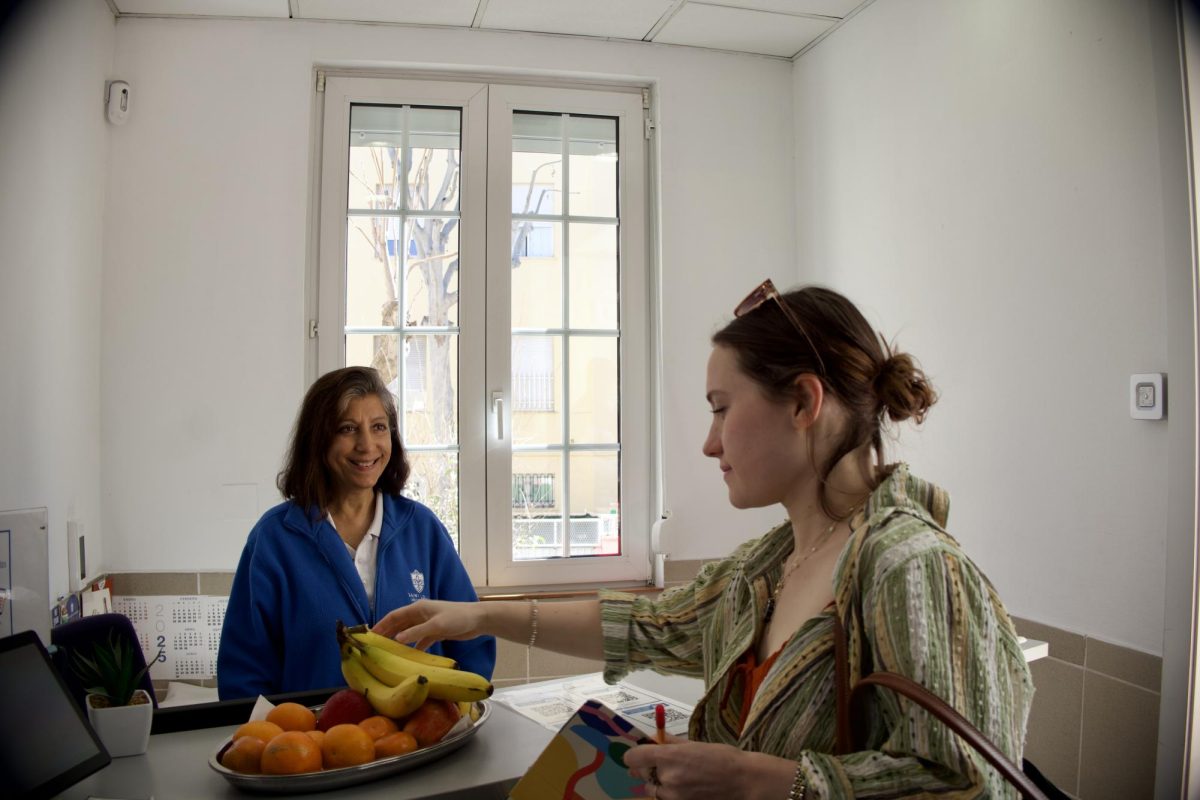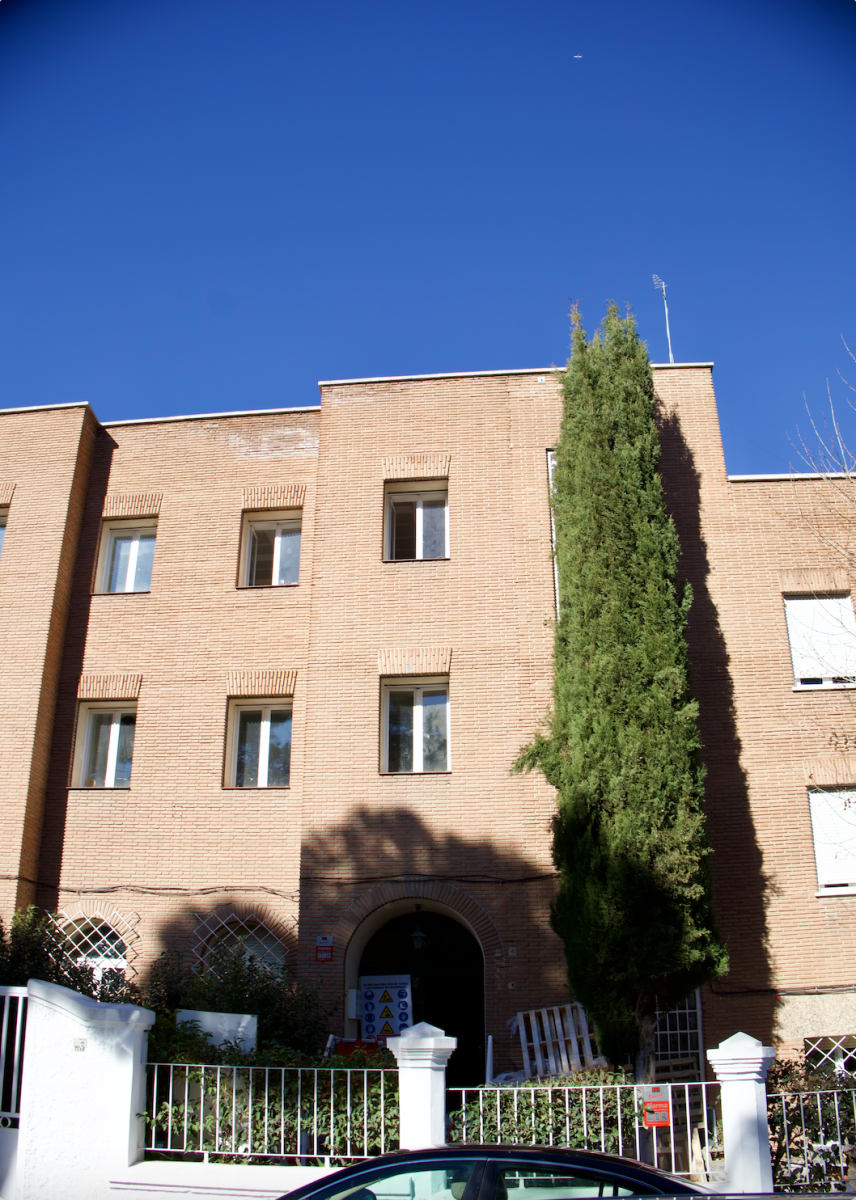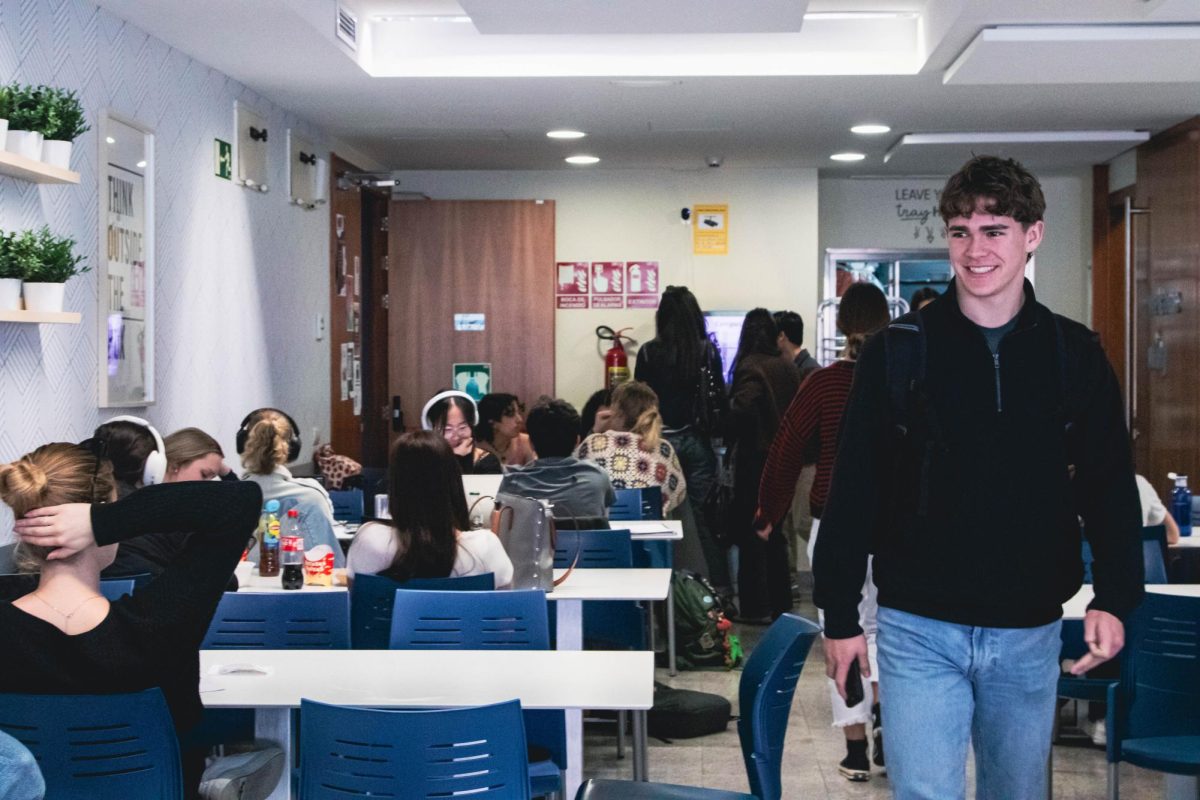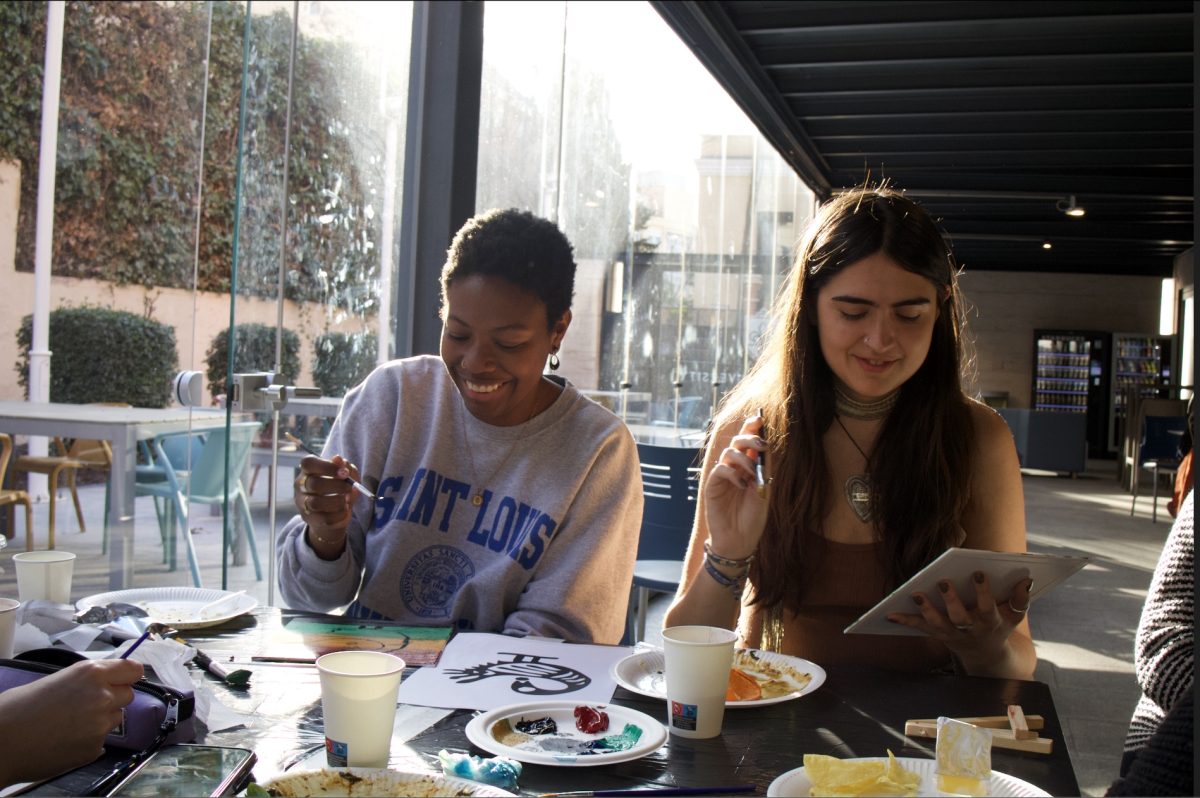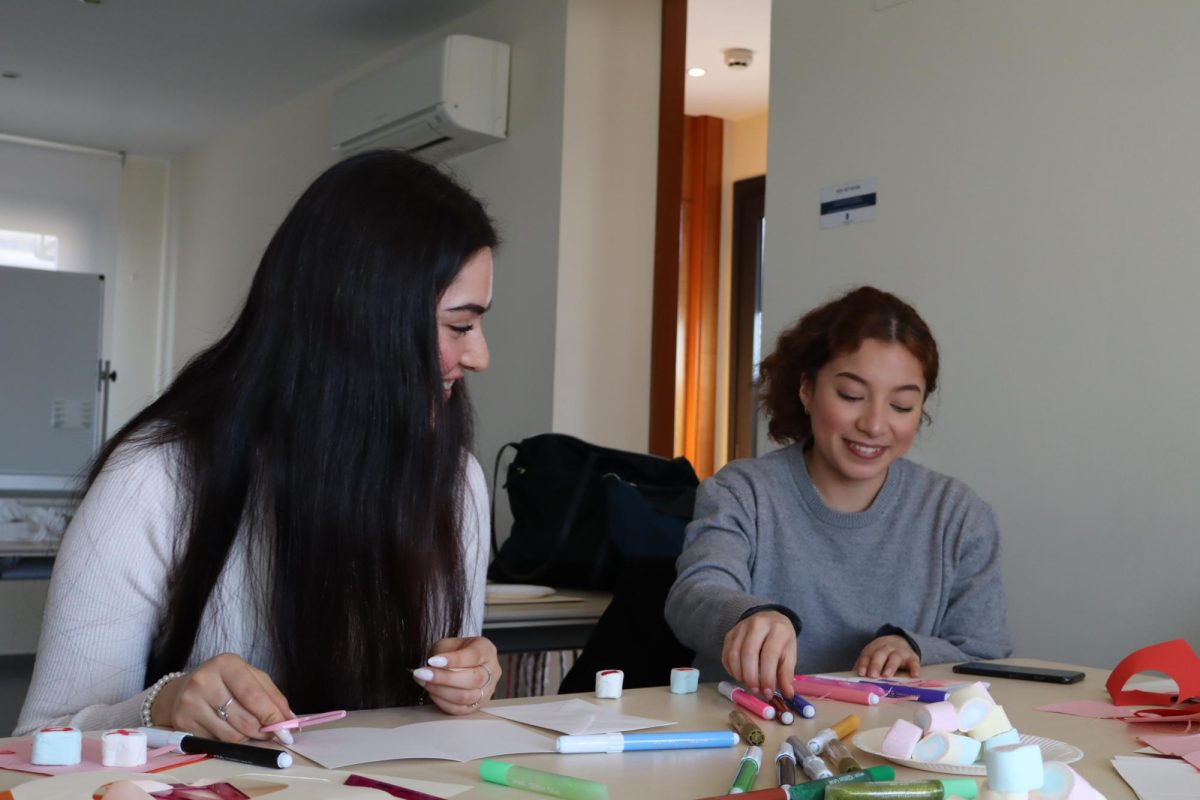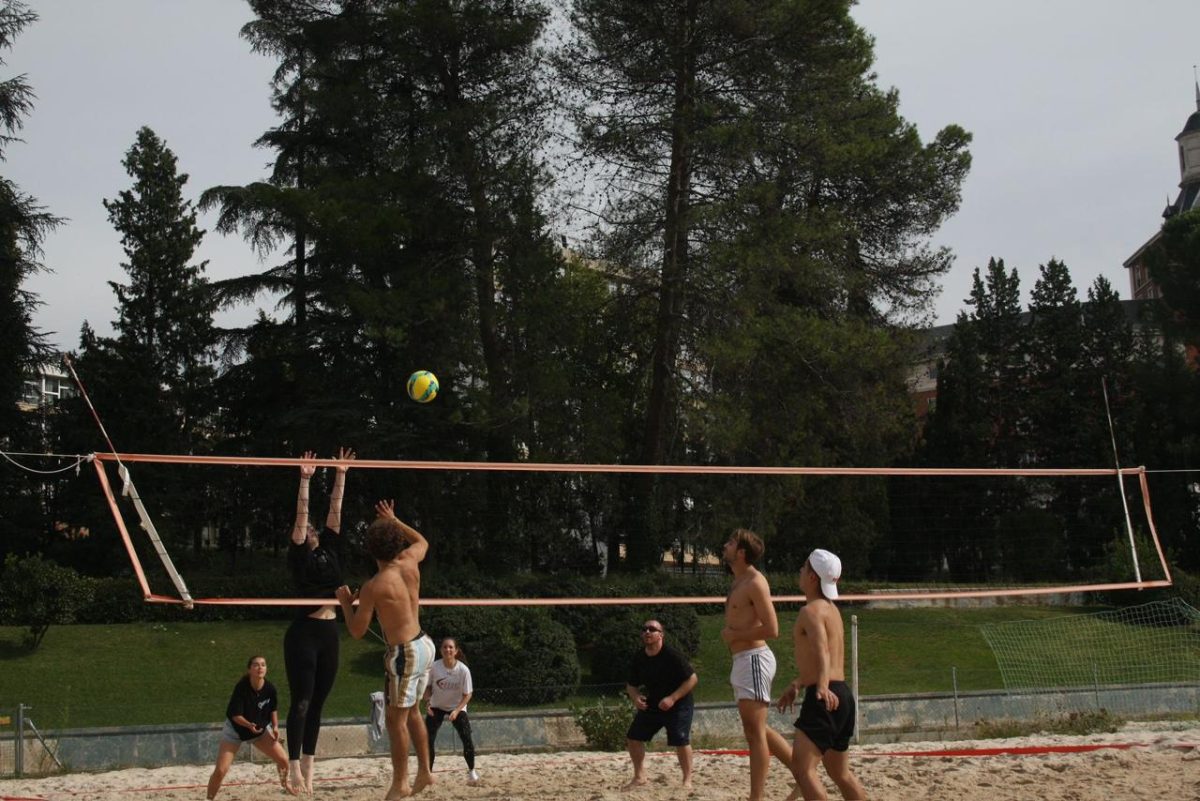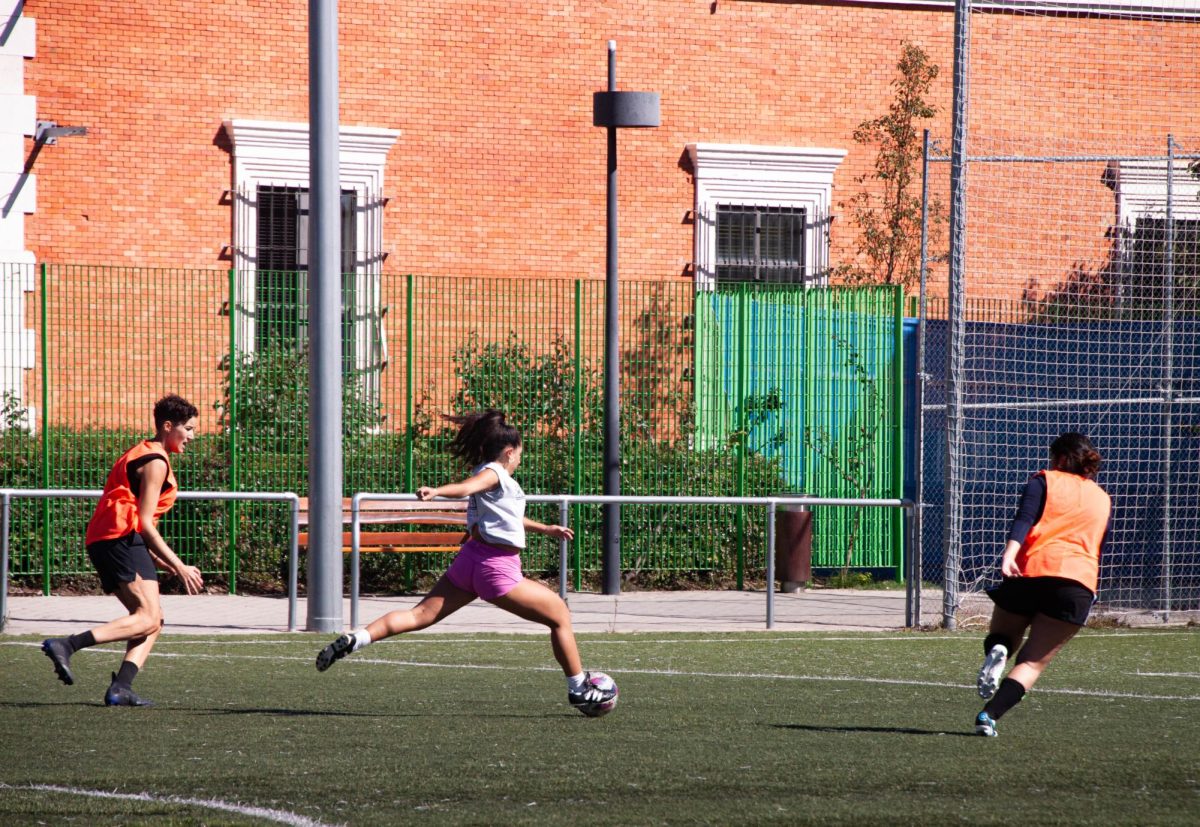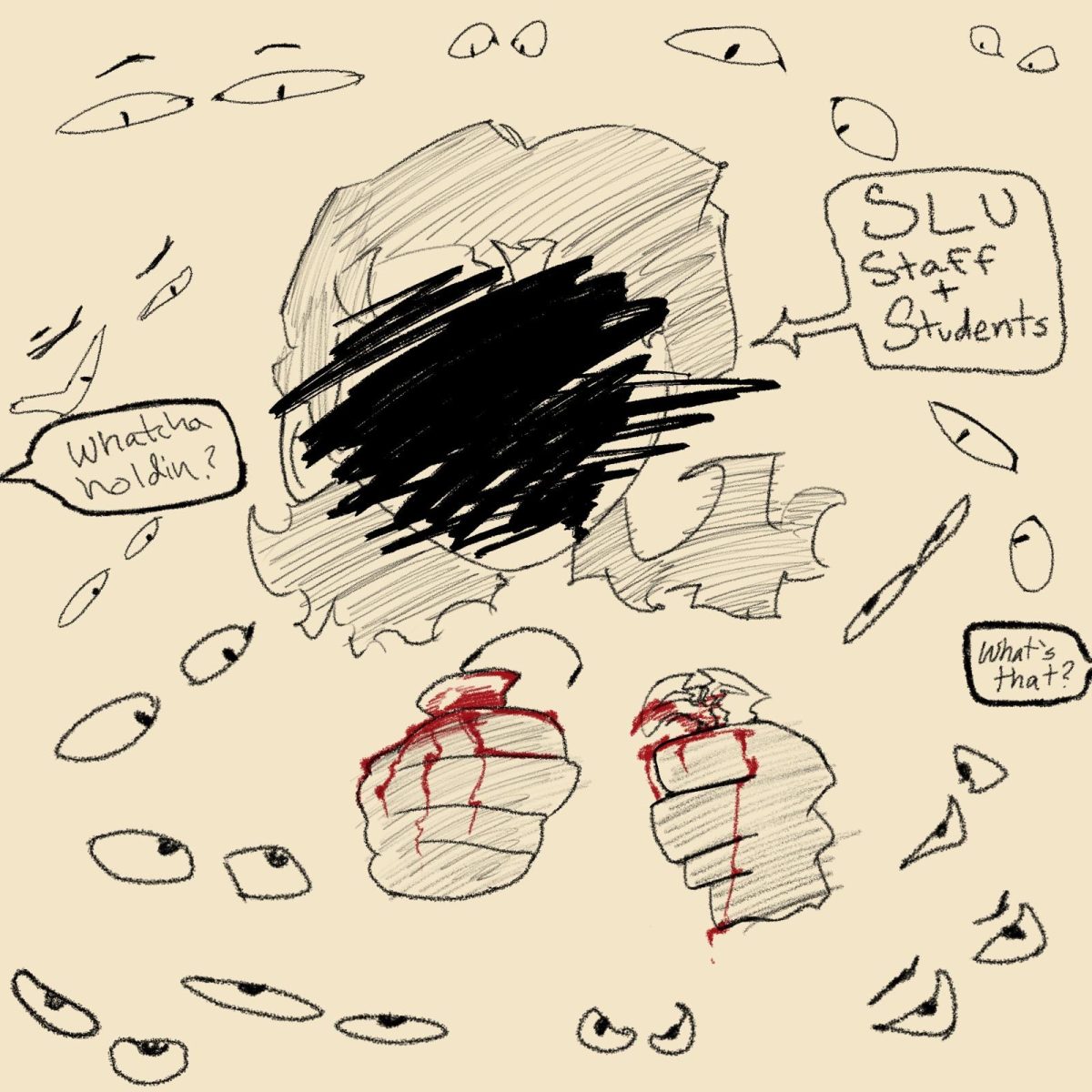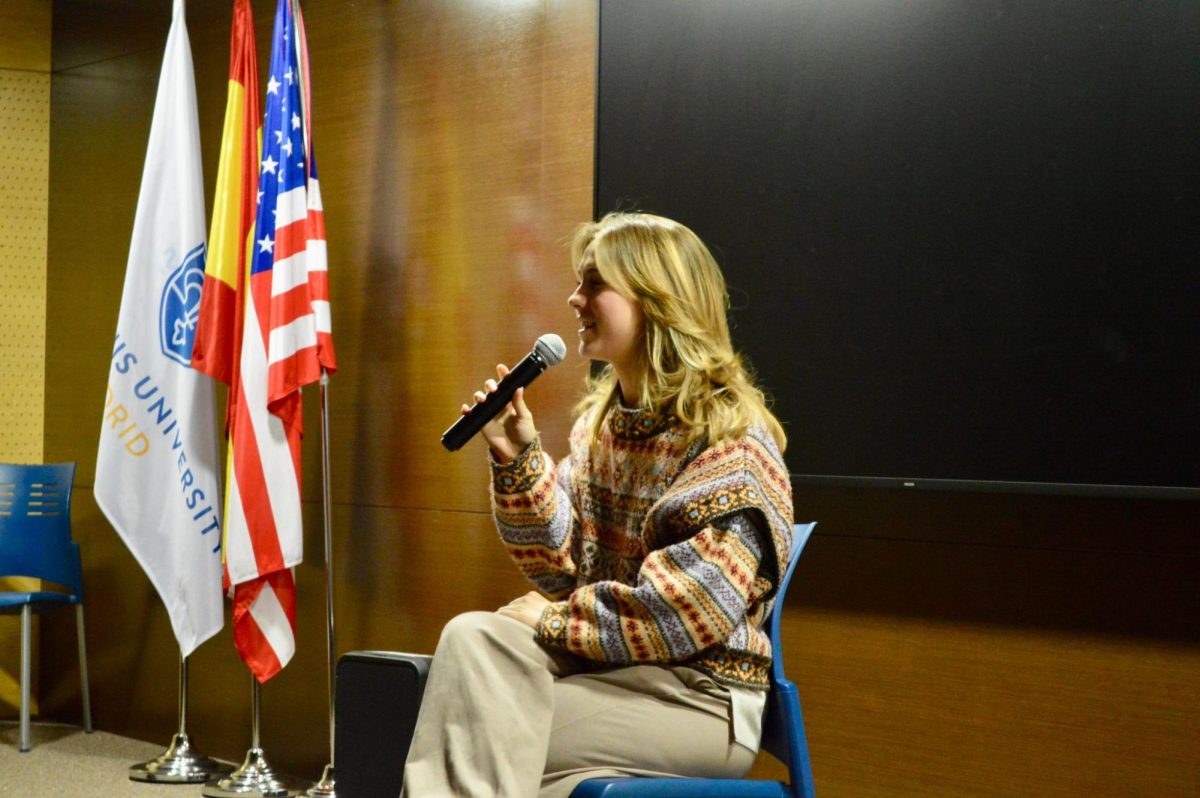On Nov. 18th, student government president Kayla Reyna announced to the SLU Madrid permanent student group chat that maintenance faculty would be adding trash cans to the stalls in the SIH women’s restrooms. The WhatsApp message got 34 likes. Most get none.
To those who’ve never menstruated while in SIH, this announcement didn’t mean much.
When asked, two male freshmen, Patricio Salto and Anas Chaabani, said they “had no idea” this was even a problem.
Until Fall of 2024, the SIH bathroom stalls lacked individual sanitary bins. This meant that, for those few days every month, female students and faculty were forced to carry bloody pads and tampons out of the stalls in order to dispose of them in the general trash can.
Britney Saras Felix, a SLU-Madrid Junior, recalled resorting to “keep[ing] the pad” and putting it inside of “a little buñuelos thing from Carrefour” during rush hour to avoid “announcing to the world” that she was menstruating.
“It was like a heist from Mission Impossible,” she said.
Another student said: “If there were a bunch of people [in the bathroom],” they were “just going to flush [their tampon]. And I’m sorry if the pipes are f**ked. But this isn’t my fault.”
It was, as SGA club coordinator, Olivia Wendel, put it, “a human dignity issue.”
“It’s been a long time in the making,” Wendel said, “There have been at least three or four years worth of SGA cabinets that have tried to get trash bins in the bathrooms and they haven’t worked in the past.”
Wendel assumed that the problem persisted for so long for some bureaucratic reason and prepared to plead the female student body’s case.
“I initially wrote a letter, a proposal in summer,” she recalled, “Our plan was to speak with the faculty Senate. We were going to go to the SLU Administration with the support of the students and the faculty and say, ‘You can’t tell us no now.’”
It was unnecessary. On the third day of William Johnson serving as SLU-Madrid Rector, he met with the SGA cabinet to hear the concerns of the student body and the message stuck.
“Of all the things that we discussed that night, the bins in the bathrooms, as a matter of human dignity– to borrow a phrase from Olivia– for me was the top priority.” said Johnson. “I knew that I needed to learn more about what the obstacles were. I knew I didn’t know the history and that I didn’t want to point fingers, but for me, it was urgent that we find a creative solution. And fortunately, we were able to.”
Johnson decided to go “ask the folks who are in the best position to really know the campus’s physical plan, to be creative and to look harder, to think about other vendors, to think about differently sized bins, to think about creative placement. And they were completely on board with that and happy to play whatever role they could to achieve a just outcome.”
As it turned out, operations had mistakenly used the measurements of the smallest stalls in the restrooms to represent the dimensions of all the bathroom stalls. This assumption led them to believe the women’s restrooms in SIH simply didn’t have the room for any individual trash cans.
“I think everybody was in agreement that it was desirable to address this, to put bins in the stalls,” said Johnson, “but there was a belief that instead of being a question of whether it’s something we ought to do, it was a question of whether it was something we can do.”
Once the administration realized “that we could accommodate the current vendor and the traditional bins in the wider stall,” Johnson decided to make “the request to place the order and to do it on an expedited basis…and it got done. And then things happened pretty quickly.”
A little over a month after SGA’s first meeting with the Rector, trash cans appeared in half of the bathroom stalls. According to Johnson, “the student leaders here deserve the credit.”
During the years without individual sanitary bins, Felix felt “frustrated by the fact that something so simple…wasn’t there.”
After Felix became president of the Neurodiversity and Accessibility club, the problem began to hold more weight.
“If you can’t even provide the most basic of necessities, then how are we supposed to expect anything more when it comes to students with accessibility needs like wheelchairs for example,” she said.
Now, even when she is not menstruating, Felix says the trash cans serve as “a really good reminder” that the SLU-Madrid campus and its student representatives are listening.
“Finally,” Felix said with a grin, “I can now rest well knowing that I don’t have to use toilet paper as my last resort for everything.”

